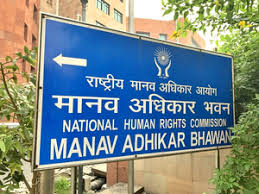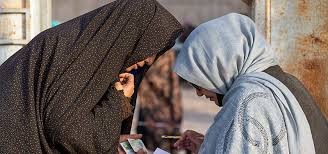- Courses
- GS Full Course 1 Year
- GS Full Course 2 Year
- GS Full Course 3 Year
- GS Full Course Till Selection
- Online Program
- GS Recorded Course
- NCERT (Recorded 500+ Hours)
- Polity Recorded Course
- Geography Recorded Course
- Economy Recorded Course
- AMAC Recorded Course
- Modern India, Post Independence & World History
- Environment Recoded Course
- Governance Recoded Course
- Science & Tech. Recoded Course
- International Relations and Internal Security Recorded Course
- Disaster Management Module Course
- Ethics Recoded Course
- Essay Recoded Course
- Current Affairs Recoded Course
- CSAT
- 5 LAYERED ARJUNA Mentorship
- Public Administration Optional
- ABOUT US
- OUR TOPPERS
- TEST SERIES
- FREE STUDY MATERIAL
- VIDEOS
- CONTACT US
NHRC Takes Suo-Motu Cognisance of Prisoners’ Plight
NHRC Takes Suo-Motu Cognisance of Prisoners’ Plight
11-04-2025

- The National Human Rights Commission (NHRC) has taken suo-motu cognisance of the ongoing hardships faced by prisoners across India.
- Responding to reports highlighting the deteriorating conditions in jails, the NHRC has issued notices to the Chief Secretaries of all States and Union Territories, seeking detailed reports on challenges such as overcrowding, inadequate healthcare, and the lack of basic facilities in prisons.
Legal Framework: Prisons as a State Subject
- Under Schedule VII of the Indian Constitution, the management and regulation of prisons fall under the jurisdiction of State Governments, categorized under List II (State List).
- As such, the responsibility for ensuring humane conditions within prisons rests primarily with individual states.
Key Challenges Faced by Prisoners in India
1. Overcrowding and Basic Facilities
- Indian jails are operating beyond capacity, with an average occupancy rate of 131.4%.
- Undertrial prisoners form the majority of the prison population, accounting for 75.8% as of 2022.
- Access to essential amenities remains poor:
- Fewer than 40% of prisons provide sanitary napkins.
- Only 18% have dedicated facilities for women inmates.
2. Concerns Regarding Women Prisoners
- Many women inmates are subject to violations of dignity and safety, leading to mental trauma and emotional distress.
- There are no explicit provisions in many state jail manuals that recognize a woman prisoner’s right to reproductive health and choice.
3. Prisoners on Death Row
- The justice process for those sentenced to death is marked by excessive delays.
- From 2006 to 2022, the execution rate stood at a mere 0.3%, as per NCRB data.
4. Discrimination Within Prison Walls
- Caste-based roles are often assigned in prison labour.
- Instances of manual scavenging persist.
- Inmate classification is sometimes influenced by social status, contributing to unequal treatment and discrimination.
|
Legal and Policy Provisions for Protecting Prisoners’ Rights Provisions in India
International Guidelines
|
|
Also Read |
|
| Public Administration Optional | |
| UPSC Monthly Magazine | Question Answer Practice For UPSC |




